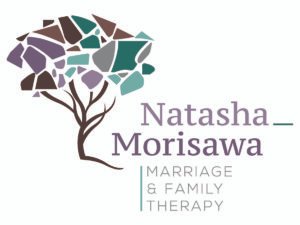Ecopsychotherapy
We are in the midst of a geo-social-political polycrisis, an occurrence of simultaneous catastrophic events that impact our communities and leave us with deep uncertainty about the future. Novel disease, climate change, homelessness, financial uncertainty, clean water supply challenges, housing crisis, plant and animal extinction, and increased political polarization has an impact on our physical, mental, emotional, spiritual, and relationship wellbeing.
Are you a human who gets overwhelmed or avoids topics related to polycrisis?
Are you a professional or activist who is noticing signs of burnout?
Are you a parent, family member, or someone who works with youth or young adults who are expressing sadness, resignation, and hopelessness about their future?
Are you a healer or in a helping profession and feeling helpless when it comes to treating people, animals, plants, or land in crisis?
Does it seem that you feel more deeply and are more sensitive to the world around you than your current friends and family?
Have conventional therapies not included your personal cultural, spiritual, or value systems in your treatment?
You may need specialized, informed, and targeted support for the specific ways that these issues affect you.
It is likely that you are experiencing a normal reaction to these very trying times.
You don’t have to go through this alone.
Ecopsychotherapy and other types of Ecotherapy can help you manage your life.
Ecopsychology is a field of study combining Ecology and Psychology.
Ecotherapy is the practice of enhancing and mending human relationship with other-than-human nature. There is a wide range of ecotherapies that are complimentary therapies to western medical and psychological treatment.
Ecopsychotherapy is an emerging field. It is the practice of bringing concepts and interventions grounded in the theories and practices of Ecopsychology into the practice of psychotherapy.
Specific methods of treatment may include:
- Mindfulness and guided meditation
- Somatic techniques
- Breathwork
- Art therapy
- Deepening one’s creative life
- Play and humor
- Dreamwork and working with metaphor
- Family Systems work
- Understanding of trauma and generational trauma through a systems lens
- Ecospirituality- the spirituality of our genetic or cultural lineage that was tied closer to nature
- Storytelling, myth-making, meaning making through written or oral practices
- Immersion in nature and finding one’s own unique connection there
- Working with bio-philias and bio-phobias
- Circles or group work
- Community building
- Growing friend groups or community
- Deepening current relationships
- Individual and/or group retreat
- Animal therapies
- Grief work and support
- Deep rest
- Radical Self-compassion
Ecopsychotherapy can help us:
- Manage, mitigate, and metabolize the effects of trauma.
- Connect with something bigger than ourselves.
- Understand the difference between secondary traumatization and burnout and address it.
- Find ways to honor and process the deep grief and loss we’re experiencing.
- Find support for the changes that we may need to make in life.
- And most of all, create an environment where you are heard, believed, and taken seriously.
Call to set up an appointment for individual therapy or group facilitation (626)321-5869.
Interested in reading the latest on ecopsychotherapy? Sign up to join the SGV Ecopsychotherapy Collective.
Natasha Morisawa, LMFT is a certified Family Trauma Professional and holds a post-graduate certificates in Ecotherapy. She is also a Certified Veriditas Labyrinth Facilitator who incorporates working with labyrinths in individual and community healing. She and the Associates she employs and supervises work with different therapeutic interventions that address Eco-anxiety, the relationships between clients and nature, and have practices grounded in systems theory.
Resources
Podcasts and articles:
Decolonize Your Garden. (Podcast) Don’t Call Me Resilient, May 18, 2023.
Outdoor Fun + Mindfulness= Mental Health Boost for Kids
The Health Benefits of Going Outside
The Therapeutic Power of Gardening
Therapy for Black Girls podcast-Session 173 Repairing Our Relationship to Nature
On Being Podcast- Joanna Macy: A Wild Love for the World
Veterans Find Peace on America’s Trails
When Things Fall Apart We Sing
Wired Article-Where Parents Can Get Help with Climate Anxiety
Organizations:
Climate Psychology Alliance North America
Physicians for Social Responsibility
The Work that Reconnects Network
Books:
Kimmerer, Robin Wall. (2013) Braiding Sweet Grass: Indigenous Wisdom, Scientific Knowledge and the Teachings of Plants, Minneapolis, MN: Milkweed Editions.
Louv, Richard. (2008) Last Child in the Woods: Saving Our Children from Nature-Deficit Disorder. Chapel Hill: Algonquin.
Macy, Joanna and Chris Johnstone. (2012, 2022) Active Hope: How to Face the Mess We’re in with Unexpected Resilience and Creative Power. Novato, California: New World Library.
Starhawk. (2014). The Earth Path: grounding your spirit in the rhythms of Nature. HarperOne.
Stuart-Smith, Sue (2020) The Well Gardened Mind: The Restorative Power of Nature, New York, NY: Scribner.
Wilson, E.O. (1984) Biophilia: The human bond with other species. Harvard University Press, Cambridge, MA
Links to Peer Reviewed Research and Reports
https://www.climateandmind.org/books
Ecopsychology journal. Full of important articles. Behind a paywall, so consult your local academic library.

